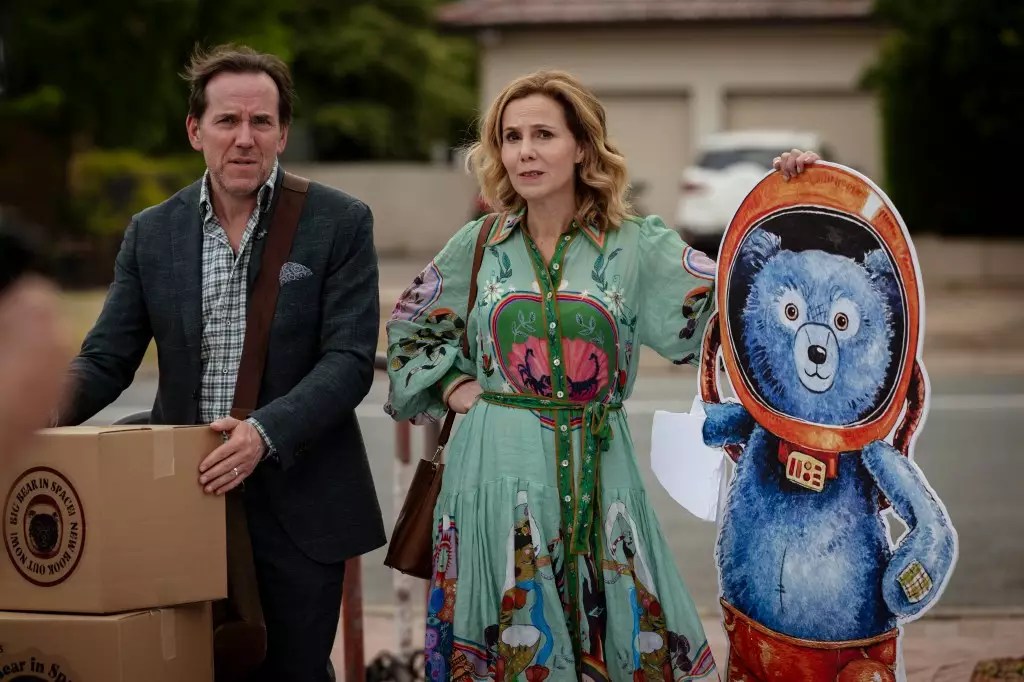As the international television trade confab MIPCOM approaches, the television industry is witnessing an uptick in high-profile content acquisitions that fall outside the traditional festival frameworks. One such notable development is the recent acquisition by Canada’s public broadcaster, CBC, of the streaming rights to the Australian comedy series *Austin*. This marks a significant trend for networks and streaming services alike, as they seek to diversify their programming lineups to attract broader audiences. The dynamics of this evolving global content landscape become apparent when examining *Austin* and other recent acquisitions in tandem.
The arrangement with CBC positions *Austin* to launch on CBC Gem, coinciding with a series of high-profile premieres, specifically the much-anticipated Sophie Turner drama *Joan*. These strategic alignments are indicative of the competitive nature of the streaming and broadcasting industry, where the timing of releases and programming diversity can influence viewer engagement and subscription growth. This competition not only exists on a national level but is increasingly international, with networks striving to acquire compelling titles that can resonate with their individual viewer bases.
A creation of Northern Pictures and Lincoln Pictures, in partnership with Screen Australia and Screen Canberra, *Austin* stands out for its engaging blend of humor and a theme rooted in the complexities of family dynamics. The narrative revolves around Austin, a neurodivergent character played by Michael Theo, who claims to be the son of Julian Hartswood, a beleaguered bestselling children’s author portrayed by Miller from *Bridgerton*. Hartswood’s character grapples with the ramifications of a social media scandal that threatens his professional reputation and personal relationships.
The unique portrayal of neurodiversity in *Austin* is not merely a plot device; it serves as a mechanism through which the series explores themes of identity, acceptance, and societal pressure. This lends *Austin* a depth that is often overlooked in comedic narratives, inviting audiences to engage with the storyline on multiple levels. Following the rise of socially-conscious comedy in recent years, such innovative storytelling is likely to resonate with viewers seeking more than mere entertainment.
Simultaneously, *Joan* presents a contrasting narrative, driven by themes of survival and transformation. This drama, led by Sophie Turner, paints a stark picture of a woman’s struggle to escape an abusive relationship, ultimately becoming a jewel thief out of necessity. This darker narrative arc showcases Turner’s character, who adopts a new identity in pursuit of securing a better future for her daughter. It mirrors contemporary societal concerns while appealing to an audience that finds empowerment narratives compelling.
The overlapping success of both *Austin* and *Joan* not only highlights the networks’ efforts to acquire diverse content but also indicates a broader shift in viewer expectations. Today’s audiences are looking for authenticity in storytelling, often preferring narratives that challenge societal norms or provide meaningful commentary. As a result, franchises that produce content in this manner have a distinct advantage in the competitive streaming environment.
Moreover, the strategic moves by networks such as CBC and ITV illustrate how international partnerships are paramount in today’s media landscape. The acquisition of *Austin* by CBC, alongside the various international distributors involved with *Joan*, reflects the importance of leveraging global content to satisfy local viewer appetites. As evidenced by the numerous broadcasters in Europe, such as the BBC and various streaming channels in the Nordics and elsewhere, there is a relentless pursuit of compelling narratives that transcend regional boundaries.
The acquisition of shows like *Austin* and *Joan* signifies a critical moment in the television landscape. The negotiations and resulting programming decisions represent more than just content deals; they are indicative of shifting viewer preferences, the evolving cultural conversation around representation and identity, and the necessity for networks to innovate in a crowded marketplace. As the streaming war intensifies, content that is both relevant and relatable will undoubtedly continue to dominate discussions around the future of television.


Leave a Reply